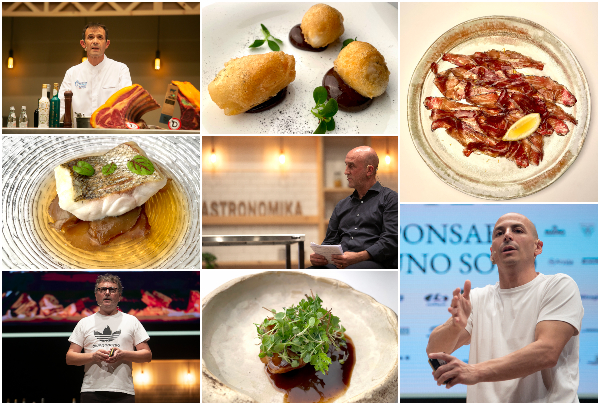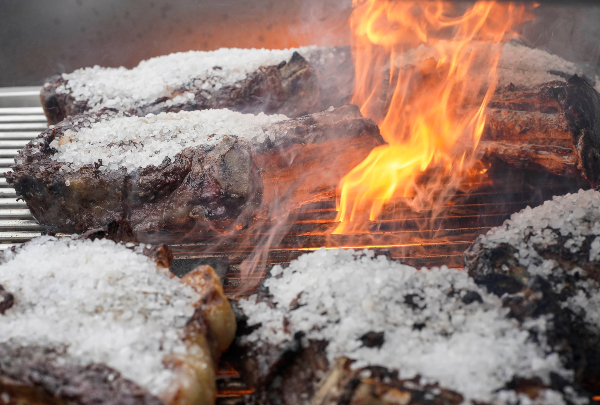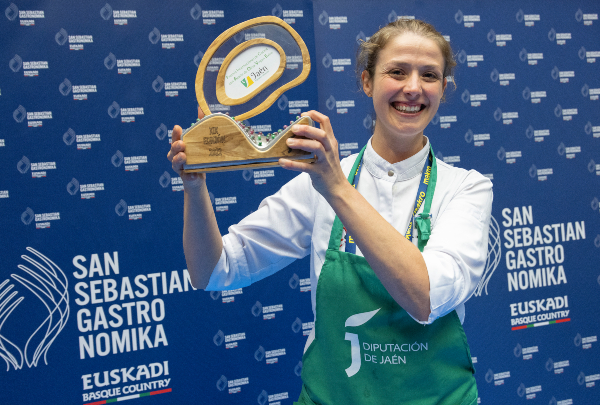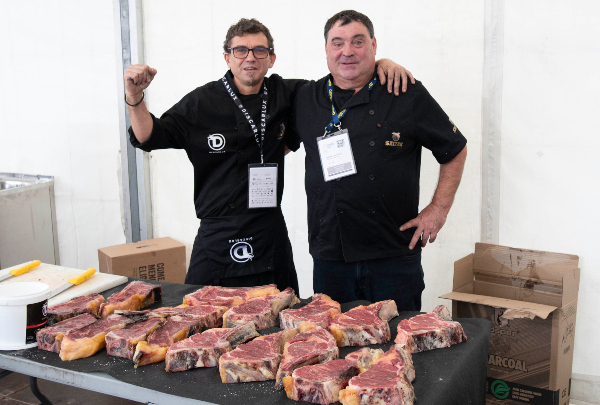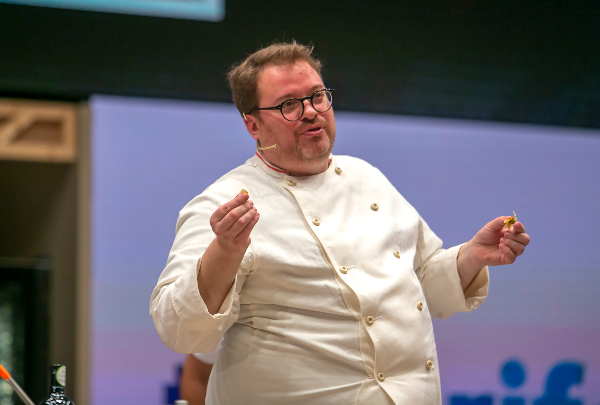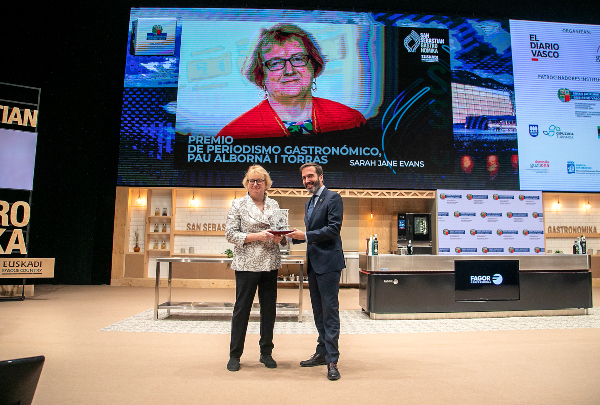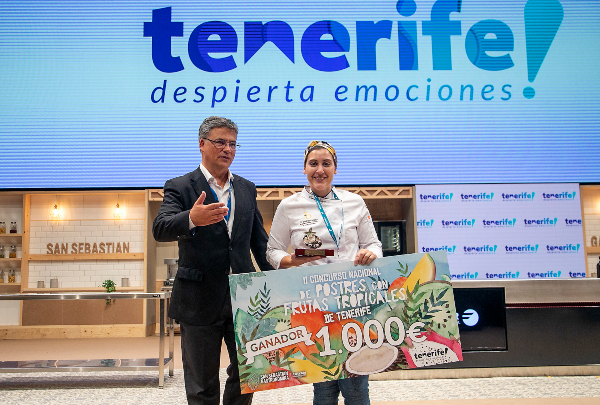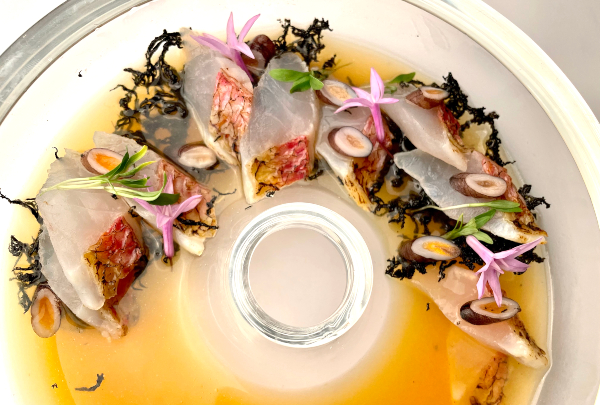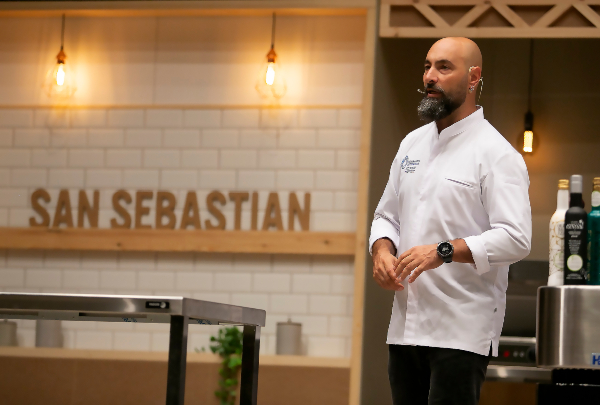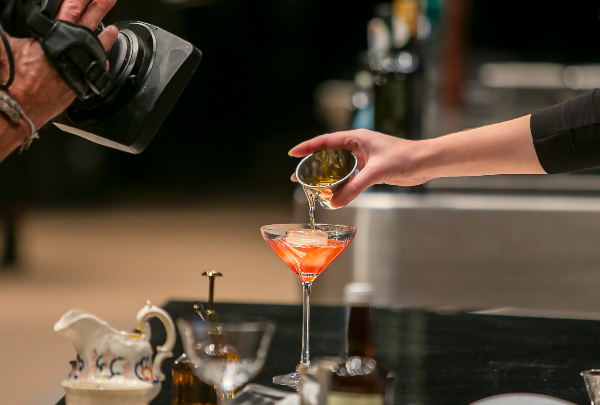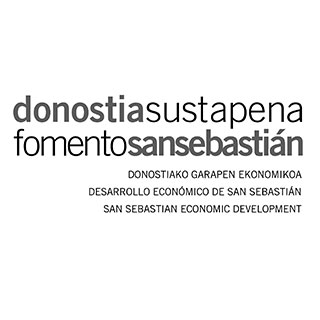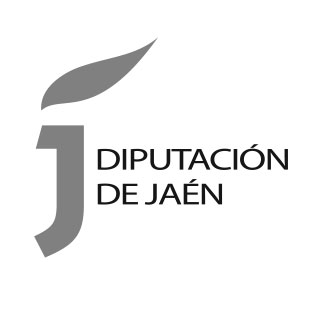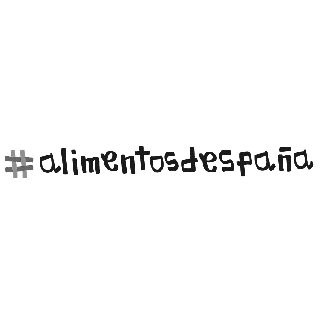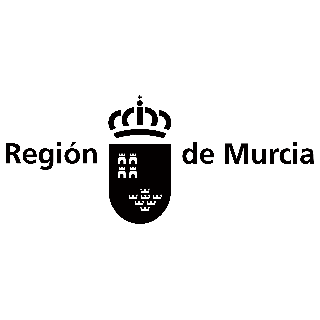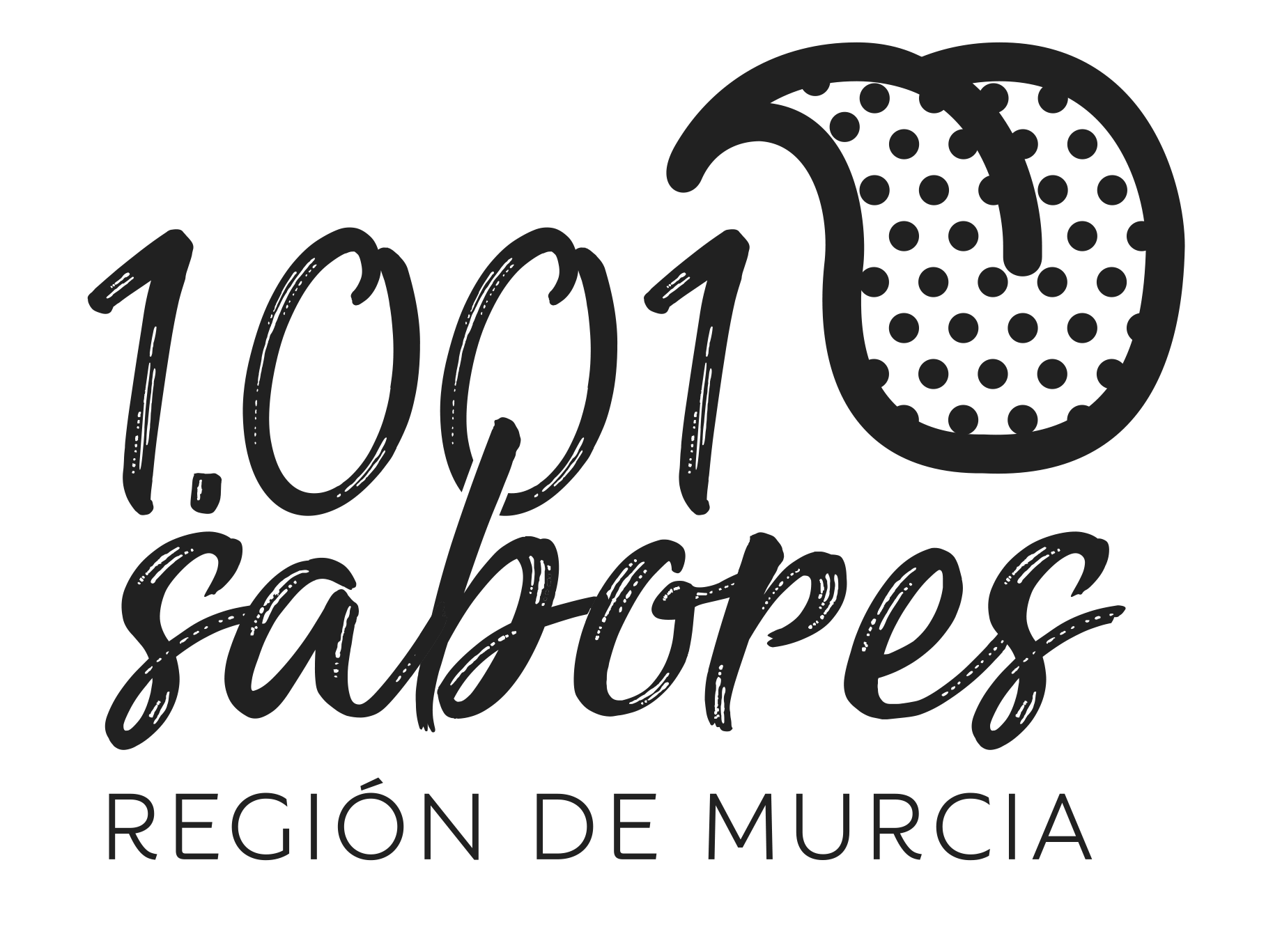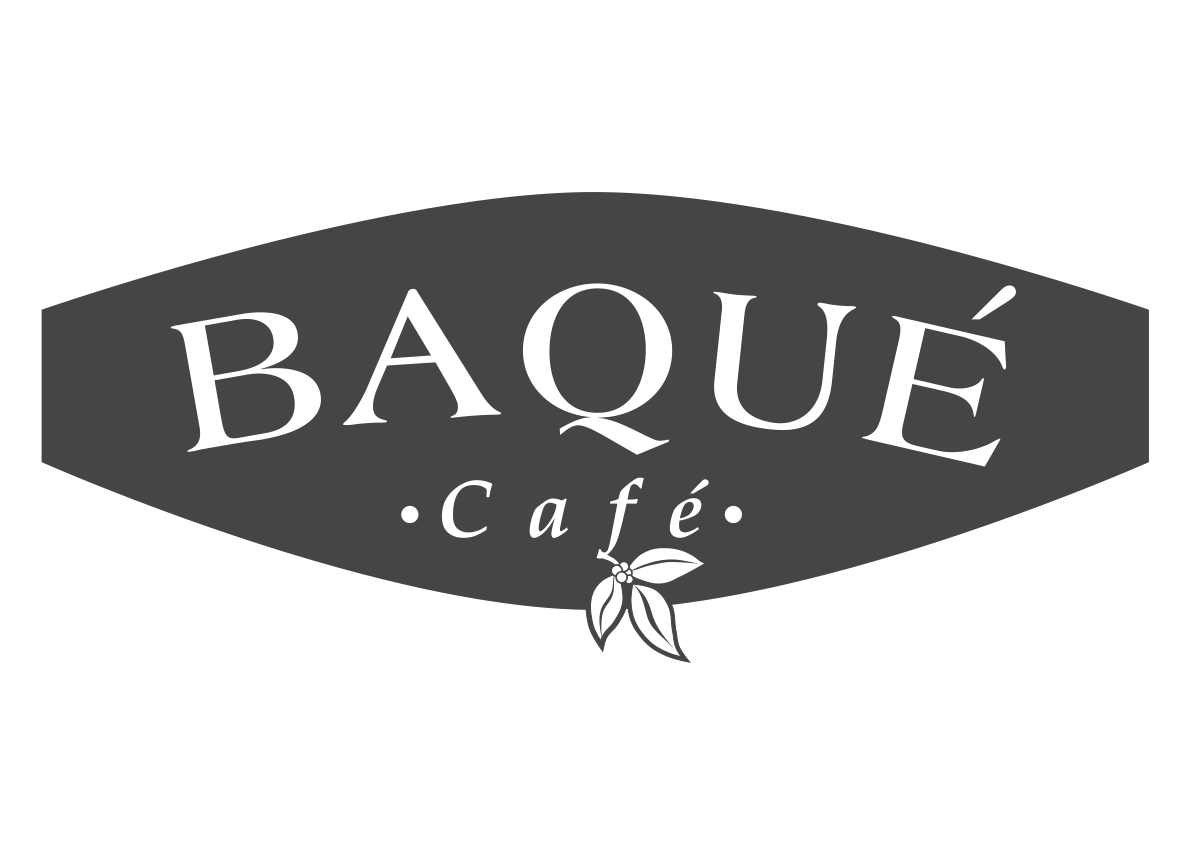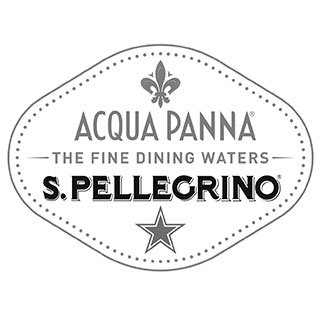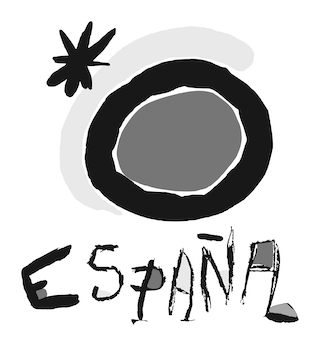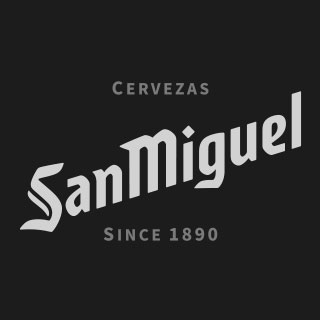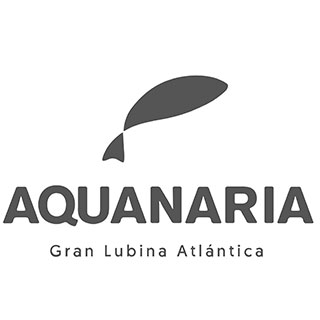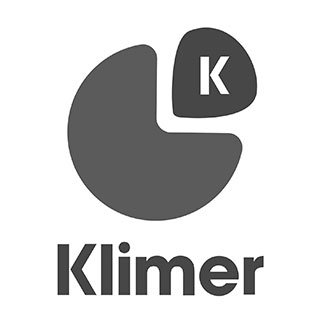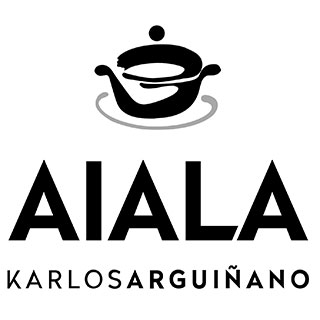News
Gastronomika begins the culinary“anti-Brexit”
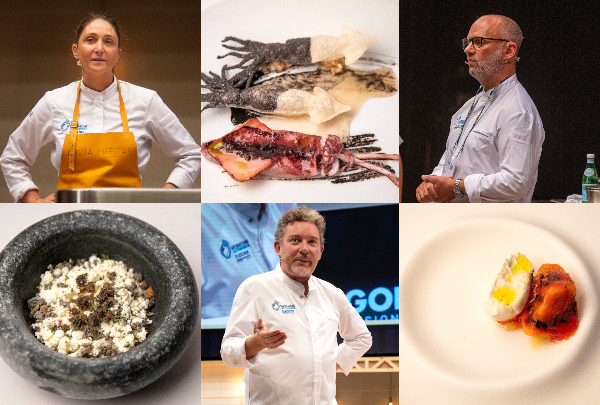
From the menus at the Arzak restaurant since 1969 to Azurmendi’s journey to the moon at the opening session of the congress in San Sebastián. Simon Rogan heads the delegation of British chefs who have come to share what is happening in the UK “which is really exciting”. Lucía Freitas champions the female primary sector and brings up on stage about twenty Galician “amas da terra”.
“Right from the start Gastronomika has kept the same idea: Encouraging knowledge and sharing it among the professionals in the sector. This is why, in contrast with this symbol of a breakup that Brexit represented, we are supporting the culinary anti-Brexit”. These were the words of the director- general of Vocento Gastronomy, Benjamín Lana, who, together with the members of the San Sebastian Gastronomika – Euskadi Basque Country technical Committee, Martín Berasategui, Elena Arzak, Josean Alija, Andoni Luis Aduriz, Eneko Atxa and Pedro Subijana, and its director, Roser Torras, opened in the morning the 24th year of the doyen of gastronomic congresses, a Gastronomika that this year has the UK as a guest country and “United Kulinary” as a slogan, a symbol of the unity that has always been, and still is, exemplary in the gastronomic sector”, Torras recalled.
On behalf of the representatives from the United Kingdom one of its great contemporary stars, Simon Rogan (L'Enclume***, Cumbria, UK) came up on stage, and explained his English terroir cuisine as well as being “delighted to be here. Together with my colleagues, we hope to be able to share what is happening in the UK, which is really exciting”.
Thomas Keller: “One of the best moments in my career was taking part in SSG 2010”
The first day also saw the presentation of the Homage award, which went to the only American chef to boast three Michelin stars at two different restaurants (The French Laundry, California, and Per Se, New York), Thomas Keller. As he was recovering from Covid, he hadn’t been able to travel to Spain but he had recorded a video to say thank you: “Gastronomika is an extraordinary congress, which helps to share knowledge, and in which I had the good fortune to take part in 2010, a moment that I remember as being one of the best in my career. Thank you very much for considering me to be worthy of this award, from the bottom of my heart”.
The memories and applause for Keller were extended to José Polo, who received the Congress Golden Gueridón, and to Carles Abellán, who won the 3rd National Chickpea Championship with his Casa Natalia in Formentera. On the first day the Ruinart Sommelier Challenge Competition Award was also revealed and Makro celebrated its 50th anniversary on stage.
Gastronomy of history and respect
The presentations by Elena Arzak and Lucía Freitas addressed history and respect. Juan Mari Arzak’s daughter provided an interesting overview of the history of the menus from the Arzak restaurant, “several thousand since 1969, the date when the first one was printed”, she acknowledged. “A menu is more than a list of dishes, it’s a manifesto of the identity of the restaurant. A way of sharing its essence and existence. It’s a love letter to produce, to the producer, to details, to know-how, to technique and the diner”, she explainedAnd to continue with the". simile, the tasting menu would be the chef’s signature”.
Lucía Freitas also serves a tasting menu, although the Galician wasn’t here to talk about this, but to champion the female Galician primary sector. The chef from A Tafona* (Santiago de Compostela) cooked some dishes but the climax of her presentation came at the end, when she brought up on stage 25 craftswomen, chefs, barnacle pickers, shellfish pickers, and retired Galician women… “They are the real stars of the food in my restaurant and in everyone’s. The genuine Michelin stars. The women who keep gastronomy going in this country”. It brought down the auditorium.
The Galician had given a presentation to thank the female primary sector (her restaurant staff are mainly women), a “mission that we chefs also have. The spotlight is on us, and we need to know how to shift it to raise the profile of those who need this and really deserve it”. And there they were, with their faces beaming with joy. And Freitas applauded. And so did everyone in the Kursaal: “They deserve it”.
Starches at Disfrutar
Albert Adriá reopened Enigma with the name, Enigma Concept, three months ago, and a month and half ago he changed the concept. “So, the restaurant that I’m presenting to you that I’ve got my entire team devoted to, is only a month and a half old”. Albert Adrià was back at Gastronomika and was really having fun being here and “in better form than ever. I cook eleven hours a day. I’m experiencing a second youth. He had also returned in a direct sense, you could tell, “just like the cooking I want to do now is direct. Direct in search of flavour, produce and seasonality. “We’re basing things on produce and seasonality. It seems to be a hackneyed concept, but very few people really do this. It’s difficult and expensive”.
Spontaneous, unscripted, Adrià really wanted to assert himself: “I’ve dispensed with the seasons –You don’t know how complicated it is to move groups of different people around!- and I go straight to the dish, with a large dining room team (45 professionals for 50 diners) and with no tasting menu. I want customers to have second helpings and set them free so that they come and spend money because they discover dishes that they have no references for, and justify making the journey here, and maybe cause disagreement as well, which is equally important”. Adrià - unfiltered.
Disfrutar, recently named third best restaurant in the world, also gave us a status update. After presenting the development of their work on spherifications last year, the Catalan trio amazed us once again this year with their work with starches, specifically with amylopectin that, in the oven or the microwave, “achieves different, airy, puffed- up textures, that can be worked on not only in sweet but also savoury dishes”. Oriol Castro, this time on his own -his colleagues weren’t able to come with him-, delved into this task, which creates new dishes with different ingredients that include amylopectin in their cooking”.
The chef from Barcelona ended his talk by presenting a new dish from Disfrutar with which you can eat snow”, created with a machine for making iced drinks. We want people to bring back the memory of picking up snow and eating it, so you eat this dish with your hands as if it were a sorbet”. At a given time a waiter arrives with a blowtorch and burns off the remaining snow, which vanishes, just like in the real world”. It’s not just about eating; it’s feeding the soul”. It’s the present and the near future.
Eneko Atxa is working with NASA
Eneko Atxa’s presentation was also about the future. As well as reviewing the conglomerate of restaurants that make up his group (NKO is just about to open in Madrid), the chef from Vizcaya revealed that in 2020 his Azurmendi became the first restaurant to work together with NASA. This is because at his temple in Larrabetzu they are “testing new materials for living in space, such as mycelium, a network of filaments that is found in mushrooms with a structure that is very similar to wood; lighter, resistant, compostable, sustainable and can be reproduced really quickly. A perfect element to construct in space”, Eneko Axpe, the Basque researcher from NASA who accompanied his namesake in the presentation, explained.
The idea that NASA has –Axpe continued- is to create these materials through living beings, but before testing them out there we need to test them here. And at this point Azurmendi came in. “Space technology applied to the Earth gave rise to freeze-drying that all restaurants use nowadays. We are trying to generate new structures with different types of substrates”. At Azurmendi they have tried out bowls with mycelium and coffee dregs. Axpe closed by recalling that, “it looks like the potato is going to be the first foodstuff that is going to be planted on Mars. But potatoes don’t have a lot of protein content. Mycelium does”. Azurmendi is the testing ground.
Roncero, Camarena and Matsuhisa
Before this, Paco Roncero (Paco Roncero**, Madrid), Hideki Matsuhisa (Koy Shunka*, Barcelona) and Ekaitz Apraiz (Tunateca, Barcelona) had shown some new uses for blue-fin tuna, in this case, Balfegó, and David López Carreño (Local de Ensayo, Puente Tocinos, Murcia), had spoken about mushrooms and promising crops. Furthermore, the fact that Dani García had bronchitis brought the head chef of his group, Jorge Martín, and the head chef at Smoked Room, Massi Delle Vedove to Gastronomika, and they showed the working model at the two-star restaurant -based on grilling- and some of their current dishes.
The day closed with the presentation by the Valencian chef, Ricard Camarena, (Ricard Camarena**, Valencia), who stressed the development of the idea of how necessity is the mother of invention, and of “limiting creative options to what we have, and not to what we’d like to have”, or how making the most of a product conditions the menu.
On Monday there were also presentations by Cristóbal Muñoz (Ambivium*, Peñafiel, Valladolid), who reviewed various conservation techniques that he works on at the restaurant such as marinating or blanching “although they have evolved”, and David López Carreño (Local de Ensayo, Puente Tocinos, Murcia), who explained his project on mushrooms from Murcia. Finally, Makro took advantage of the stage at San Sebastian Gastronomika to celebrate its 50th birthday.
